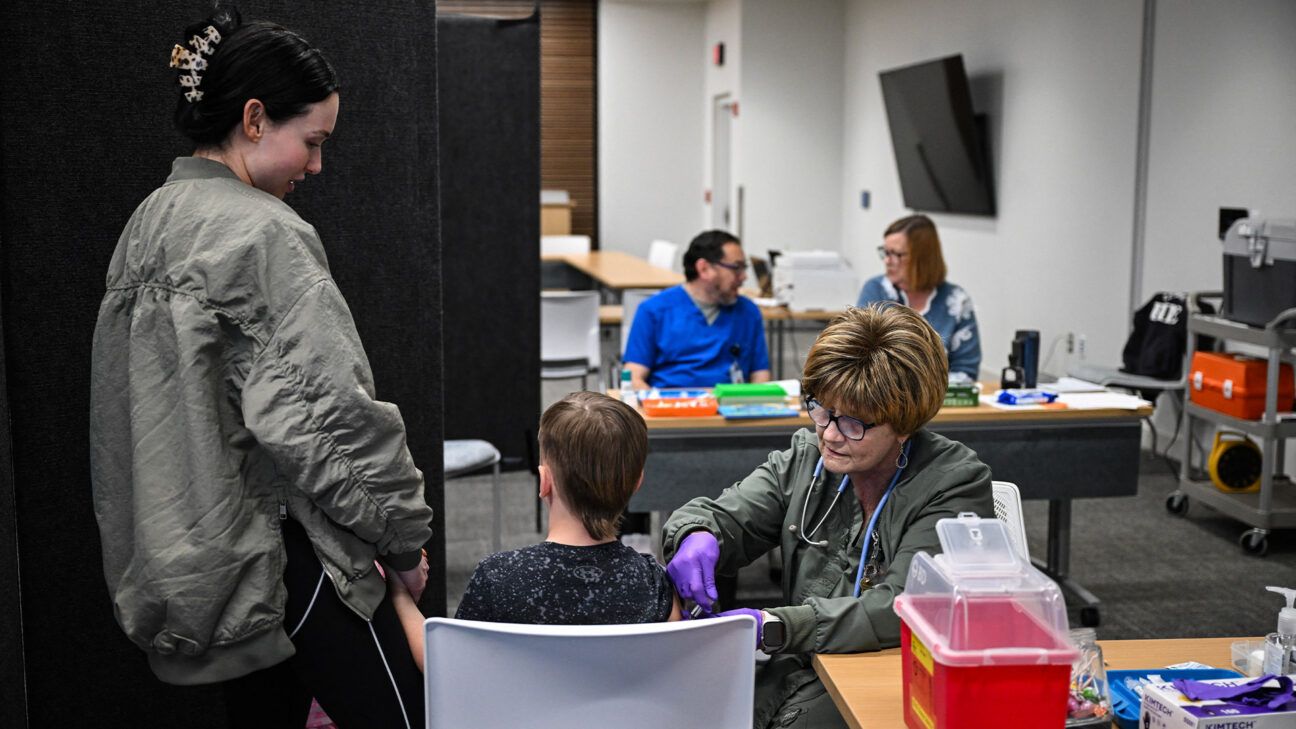As Bird Flu Spreads, What Is The Risk From Eggs And Milk?

As bird flu continues to spread across the United States, questions have emerged about the risk of contracting the virus from milk and eggs.
More than 150 million poultry birds have been killed in an attempt to combat the virus, known as H5N1, which has caused egg prices to soar and supply to be limited.
Additionally, hundreds of dairy cow herds have been affected, and reports have emerged of bird flu virus fragments found in milk products.
Health experts tell ABC News that the risk of bird flu to the general public is still low and it's unlikely that eggs or milk products available in stores are contaminated with bird flu, but there are steps people can take to mitigate their risk.
"The risk to the public to contract bird flu from items that they get in the grocery store is exceptionally low," Dr. Nicole Martin, an assistant research professor in dairy foods microbiology in the department of food science at Cornell University in New York, told ABC News. "We know that pasteurization has been shown to be very effective at eliminating the virus from milk. ... And then on the poultry and egg side, [there is] very low risk that eggs make it to the marketplace with the avian flu."
Low risk from commercial eggs in grocery stores
Government regulations currently require egg processors to wash and sanitize eggs that are graded by the U.S. Department of Agriculture to remove germs from the shell.
Additionally, some pasteurized eggs are available in grocery stores as long as the processor has approved the process with the U.S. Food and Drug Administration (FDA).
Even if bird flu manages to make its way into an egg, "the normal cooking process would kill that virus," Dr. David Cennimo, an associate professor of medicine at Rutgers New Jersey Medical School, told ABC News. "So, the only theoretical risk is if you're eating raw or undercooked eggs, and again, the flocks are being monitored for bird flu."
Once bird flu is detected in poultry or a bird species, the only way to stop the virus from spreading further is to de-populate, or cull, the entire flock.
Dr. Cameron Wolfe, a professor of infectious diseases at Duke University in North Carolina, told ABC News the eggs related to that culled flock are then discarded.
However, he said it's unclear how recently the eggs would need to have been laid to be discarded.
"If you find today that your flock is affected, and this week we're going to cull that flock and we'll take the eggs out, I don't know how far you can go back to understand which eggs might have been affected," he said. "But we do take them out of circulation."
Pasteurized milk is safe but raw milk poses a risk
Experts say most milk products present little risk, due to the process of pasteurization. Pasteurization involves heating liquids to a high temperature for a short time to kill harmful viruses and bacteria. Pasteurized dairy products, such as yogurt and cheese, are also deemed safe.
In April 2024, reports emerged of bird flu fragments found in samples of pasteurized milk. However, because the commercial milk supply undergoes pasteurization, the fragments are inactive remnants of the virus and cannot cause infection.

"Pasteurization has been shown to completely kill the virus, so the normal milk that you're buying off a shelf in the grocery store that is pasteurized is safe," Cennimo said. "So I wouldn't worry about that either."
However, unpasteurized milk, or raw milk, could be dangerous
The FDA has previously warned of the dangers of drinking raw milk, which does not undergo pasteurization The agency currently considers consuming unpasteurized milk and milk products a "high-risk choice."
"With the avian influenza virus that's currently circulating in dairy cattle in the United States, the raw milk itself has a very high concentration of this virus," Martin said. "And so what we know is that there have been many demonstrated cases of animals becoming ill and dying from drinking this contaminated milk."
Martin said there is not a clear indication if any humans have become ill from drinking contaminated raw milk but there is no intervention strategy to reduce the virus in raw dairy products without pasteurization.
Does freezing eggs or milk kill bird flu?
The experts say that freezing is ineffective when it comes to killing bird flu.
Many pathogens can actually survive at low or freezing temperatures, including H5N1.
Cennimo said one way to think about this is when someone travels to a country and they receive health advice to not drink the water in that country.
"If you've gotten good travel advice, they'll tell you, 'Don't drink anything with ice in it,' because the ice cubes are things that are infected because they were made by local water," he said. "So that just shows you right there, a literal ice cube can harbor bacteria. So freezing meat or eggs or whatever is not going to help. As far as we know, freezing does not inactivate influenza."
ABC News' Youri Benadjaoud contributed to this report.


